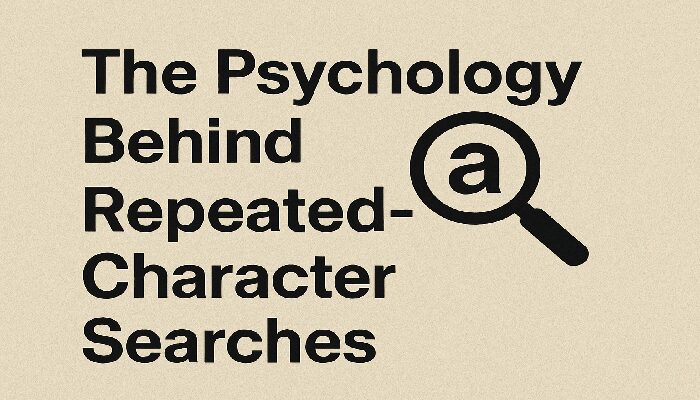What Is accccccccccccc
At face value, “faccccccccccccc” looks like someone trying to type “Facebook” too quickly and holding the “c” key for too long. It’s not a real word, brand, or keyword — yet it represents a pattern of user behavior that’s surprisingly common online.
Repeated-character searches occur when users mistype or elongate letters, usually due to:
- Typing speed or mobile autocorrect errors
- Emotional expression (e.g., excitement, frustration, or impatience)
- Search intent testing (users trying to reach something familiar, like “Facebook,” but not typing it correctly)
- Keyboard or touch-screen sensitivity issues
In this case, “faccccccccccccc” likely originated from users trying to type “Facebook” quickly or repeatedly pressing a key. Search engines like Google often correct such entries automatically, but the term still gets logged as a unique query, offering marketers and researchers valuable behavioral insights
Psychology Behind Repeated-Character Searches
Humans are emotional typists. The way people use their keyboards reveals more than just what they’re looking for — it shows how they feel while searching.
Let’s look deeper into the psychological layers behind such search behaviors:
Impatience and Cognitive Bias
In a fast-paced digital environment, users expect instant results. When a website or app loads slowly, or when their brain is faster than their fingers, they may hit keys multiple times — resulting in “faccccccccccccc”-like queries. This reflects impatience, a common digital-age emotion that brands must understand to optimize user journeys.
Subconscious Expression
Sometimes, repetition isn’t accidental. Just like people stretch words in text messages (“heyyyyy” or “nooooo”), repeated letters express emotion or emphasis. A user typing “faccccccccccccc” might subconsciously mirror the same linguistic play — not just looking for “Facebook” but expressing excitement, annoyance, or urgency.
Digital Fatigue and Inattention
Typing errors often occur when users are mentally tired or distracted. This phenomenon, known as cognitive overload, shows how overexposure to digital interfaces can reduce precision. For UX designers, this is a reminder to simplify navigation and input tasks to reduce user strain.
Learning and Habit Formation
In many cases, users who repeatedly type such patterns are learning or testing technology — for example, older users unfamiliar with smartphones, or children experimenting with typing. Such repetitive input reflects curiosity and a learning process that marketers and educators can accommodate.
Why Marketers Should Care About “faccccccccccccc”
At first, marketers may dismiss these repeated-character searches as meaningless noise. However, they offer hidden insights into audience behavior, intent, and engagement that can shape smarter marketing strategies.
Keyword Research Beyond Perfection
SEO professionals often focus on clean, high-volume keywords — “Facebook login,” “Facebook ads,” etc. But tools like Google Search Console and SEMrush show that misspelled or repeated-character searches also drive traffic. Optimizing for these can uncover long-tail opportunities with lower competition.
For example, users searching “faccccccccccccc” are clearly looking for Facebook, meaning marketers can capture those users by ensuring brand names are easily discoverable, even through errors.
User Intent and Emotional Targeting
Understanding that such searches often carry emotional tones helps marketers refine content tone and targeting. A user typing “faccccccccccccc” might be frustrated — so showing clear login guidance, fast-loading pages, or reassurance-based messaging can convert that frustration into engagement.
Voice Search and Human Behavior
In the age of voice assistants, human-like typing errors mirror natural speech patterns. Recognizing and optimizing for “digital slang” or “imperfect queries” can improve brand adaptability across search formats.
For instance, while voice users might say “open Facebook,” text users might type “faccccccccccccc.” Both stem from the same intent — reaching a familiar platform — and understanding this equivalence helps bridge search behavior across devices.
Improving Ad Targeting
Paid search marketers can use broad match modifiers and negative keyword filters to account for user typos and repetitions. Even if “faccccccccccccc” doesn’t convert directly, analyzing its data helps refine keyword lists, audience segments, and ad copy that better align with real user input.
Brand Monitoring and Reputation
Sometimes, repeated-character searches appear in social media mentions or comments, signaling strong emotional reactions to a brand. Marketers monitoring such trends can detect sentiment early, whether it’s frustration with login issues or excitement about new updates.
Technical and UX Considerations
From a design and development standpoint, “faccccccccccccc” highlights the need for error-tolerant, user-friendly systems. Users will always make mistakes — and it’s a platform’s job to guide them back smoothly.
Smart Search Algorithms
Modern websites should implement fuzzy search or autocorrect features that recognize and correct user input errors. For example, when someone types “faccccccccccccc,” the system should suggest, “Did you mean Facebook?” or automatically redirect to the correct page.
Predictive Typing and Autofill
Search bars, login forms, and chatbots should use predictive typing and autofill options to assist users in reaching their destination quickly. Reducing keystrokes minimizes frustration and improves satisfaction.
Mobile UX Optimization
Most repeated-character errors occur on mobile devices due to smaller keyboards and autocorrect confusion. Ensuring larger tap areas, responsive key sensitivity, and intuitive input correction can greatly improve UX.
Accessibility Considerations
Users with motor impairments, tremors, or visual challenges may also generate repeated-character inputs. Designing accessible forms, with forgiving input validation and voice-based alternatives, ensures inclusivity and compliance with accessibility standards.
Error Logging and Analytics
Marketers and developers can use analytics tools to track unusual queries or typos like “faccccccccccccc.” These logs reveal patterns in user errors, device types, and locations — all of which can inform product design and support optimization.
Looking Ahead: Embracing Digital Imperfections
The rise of repeated-character searches reflects a larger truth about digital life: humans are imperfect, and that’s okay. As technology becomes more integrated into everyday behavior, people’s emotional states, habits, and quirks will continue shaping how they interact with machines.
Instead of treating these behaviors as errors, forward-thinking companies can embrace them as opportunities for empathy, personalization, and innovation.
- AI personalization: Future algorithms can adapt not just to correct errors but to interpret emotions behind them. For instance, if a user repeatedly presses keys, the system might adjust to show faster responses or calming visual feedback.
- Emotion-aware design: UX design can evolve to read emotional cues from input patterns, helping websites respond more naturally to human frustration or excitement.
- Inclusive search experiences: By studying imperfect queries, we create systems that work for everyone — not just the tech-savvy few who type perfectly.
Conclusion
“Faccccccccccccc” may look meaningless at first glance, but it tells a fascinating story about how humans interact with technology. It’s a symbol of digital imperfection, a reflection of our emotions, and a data point rich with insights for marketers, designers, and developers alike.
By understanding the psychology behind repeated-character searches, marketers can fine-tune emotional targeting; by addressing technical and UX challenges, developers can make systems more forgiving and human-centered. And by embracing digital imperfections, businesses can create online experiences that feel less robotic and more empathetic — meeting users not where they “should” be, but where they actually are.







